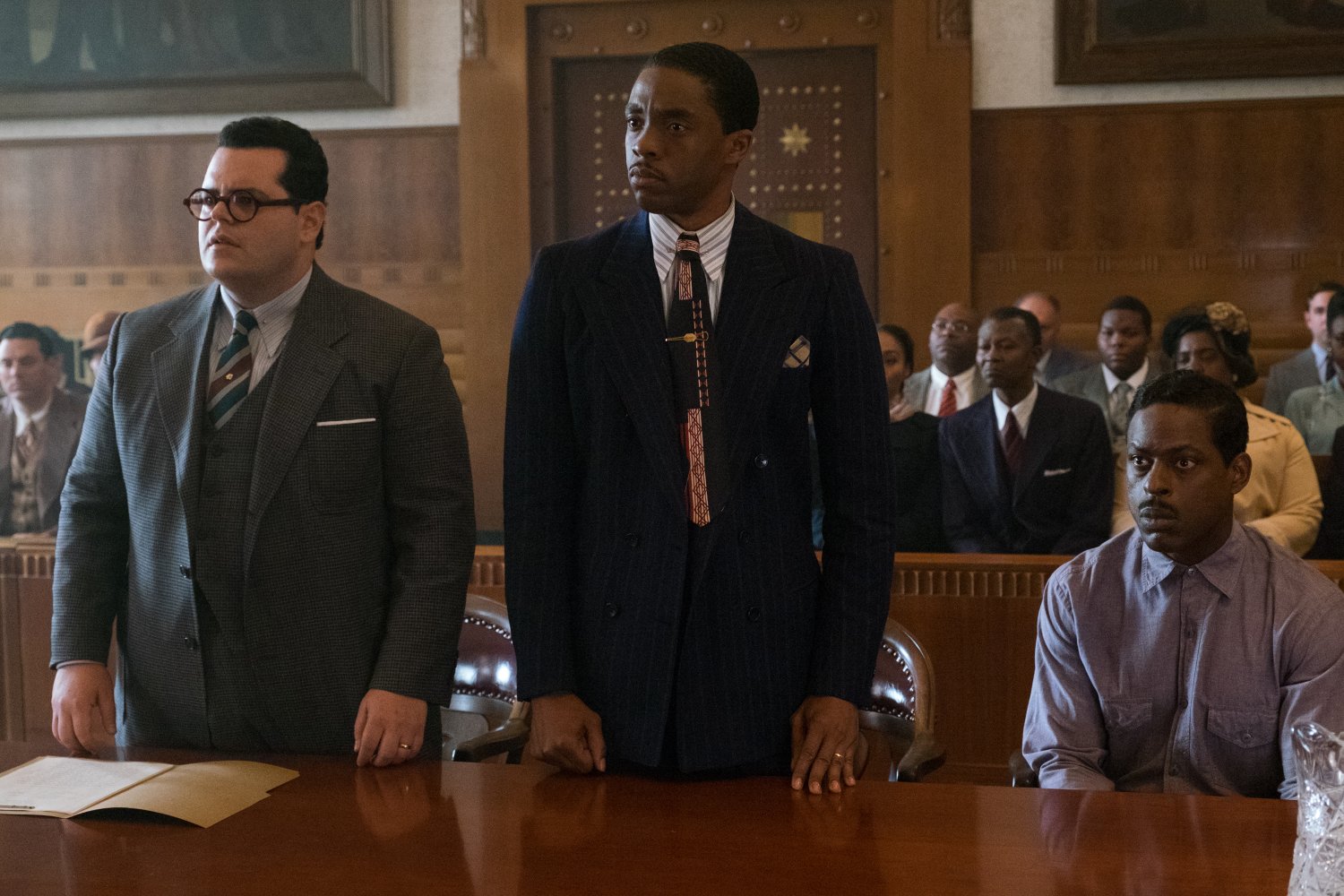Contrary to its title, Marshall isn’t really a biopic about the first black justice in the United States Supreme Court.
We don’t learn much about Thurgood Marshall’s upbringing or his influences. There aren’t many scenes of him directly overcoming oppression or fighting for civil rights. And it doesn’t even delve much into his marriage or his background in law.
Rather, the film focuses almost exclusively on a rather obscure court case — one in which he’s not even the lead defense counsel — to represent Marshall’s passion, intelligence, fairness, and tenacity. And while such an approach might lack a broader examination of Marshall’s influence, it succeeds as a taut and evocative legal thriller.
The film takes place in the early 1940s, when Marshall (Chadwick Boseman) was a diligent NAACP attorney summoned to Connecticut to help defend a black chauffeur (Sterling K. Brown) accused of sexual assault by his wealthy white employer (Kate Hudson).
He works alongside an inexperienced Jewish defense attorney (Josh Gad) dealing with some prejudices of his own, which helps to deepen their bond. As Marshall’s keen intellect brings clarity to the case in light of inconsistent testimony, his hectic schedule causes some ups and downs in his personal life.
It’s probably not fair to scrutinize Marshall as a comprehensive treatment, even if invited by the title. However, Boseman — who’s also played James Brown and Jackie Robinson in his promising young career — brings depth and complexity that transcend the screenplay’s procedural trappings.
As directed by Reginald Hudlin (House Party), the film portrays Marshall as someone who didn’t relish the spotlight, but rather worked tirelessly behind the scenes. He speaks infrequently yet commands attention when he does. He puts the welfare of others ahead of his own self-interests.
Indeed, the film conveys through its narrow chronology the qualities that eventually led Marshall to bigger and better things, which is likely the intention. So it’s easier to forgive the predictable nature of the courtroom drama, the obvious embellishments and revisionist historical touches, and the lack of surprises along the way.
Despite its flaws, the film winds up doing justice to its true-life subject in a low-key and unassuming manner that Marshall himself would have probably appreciated.





